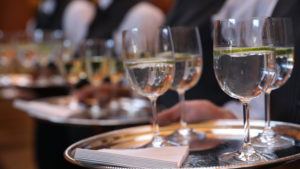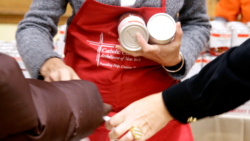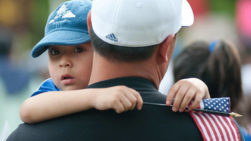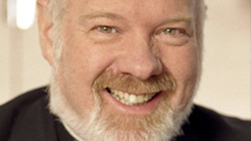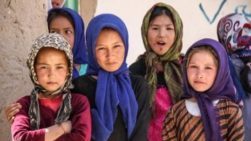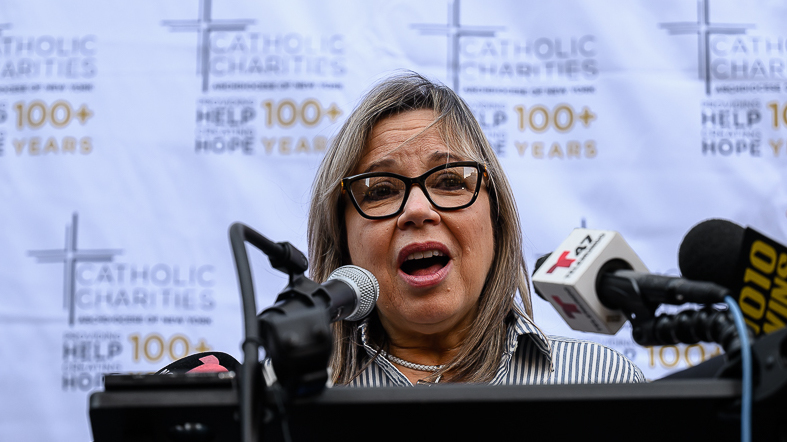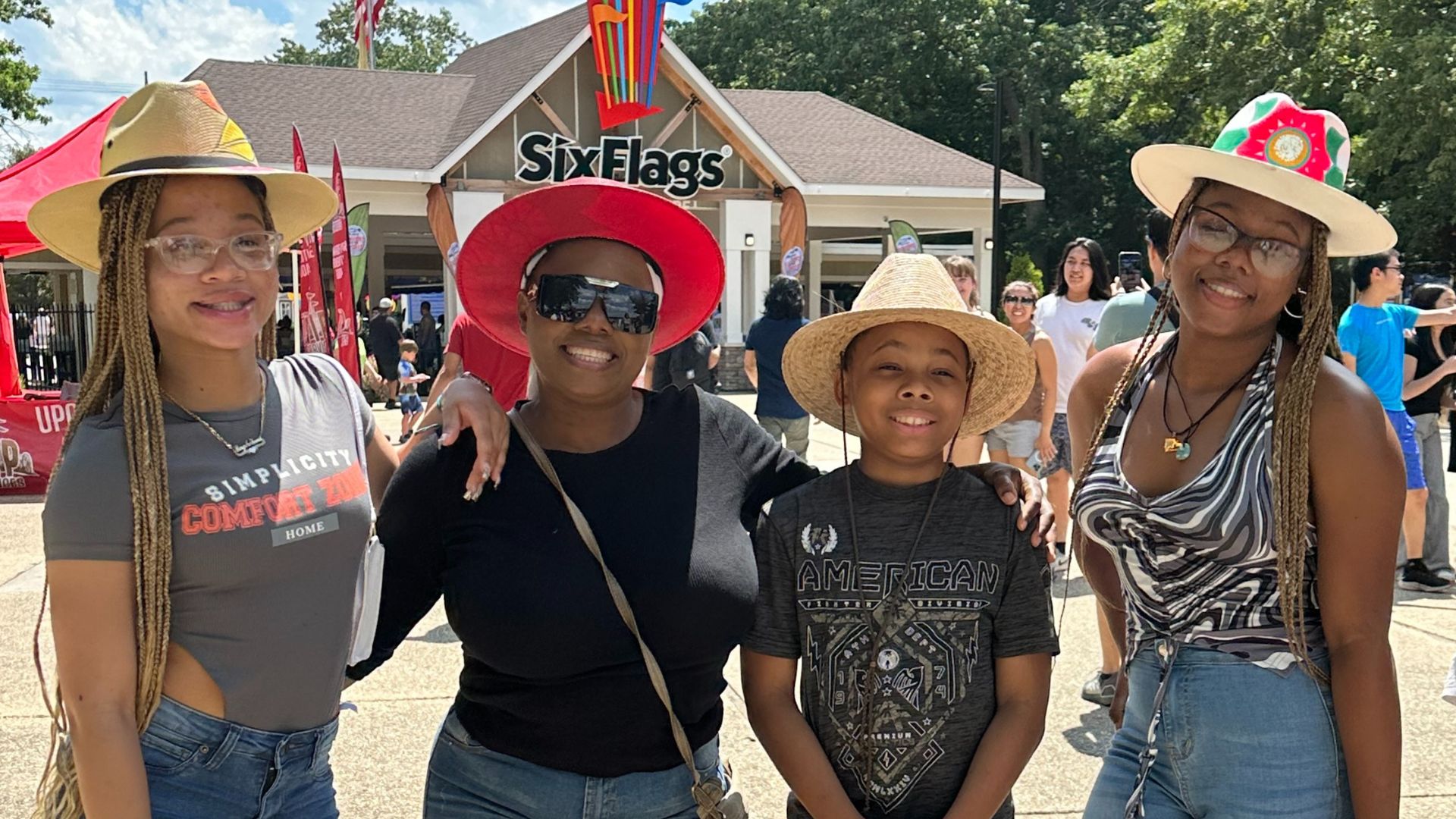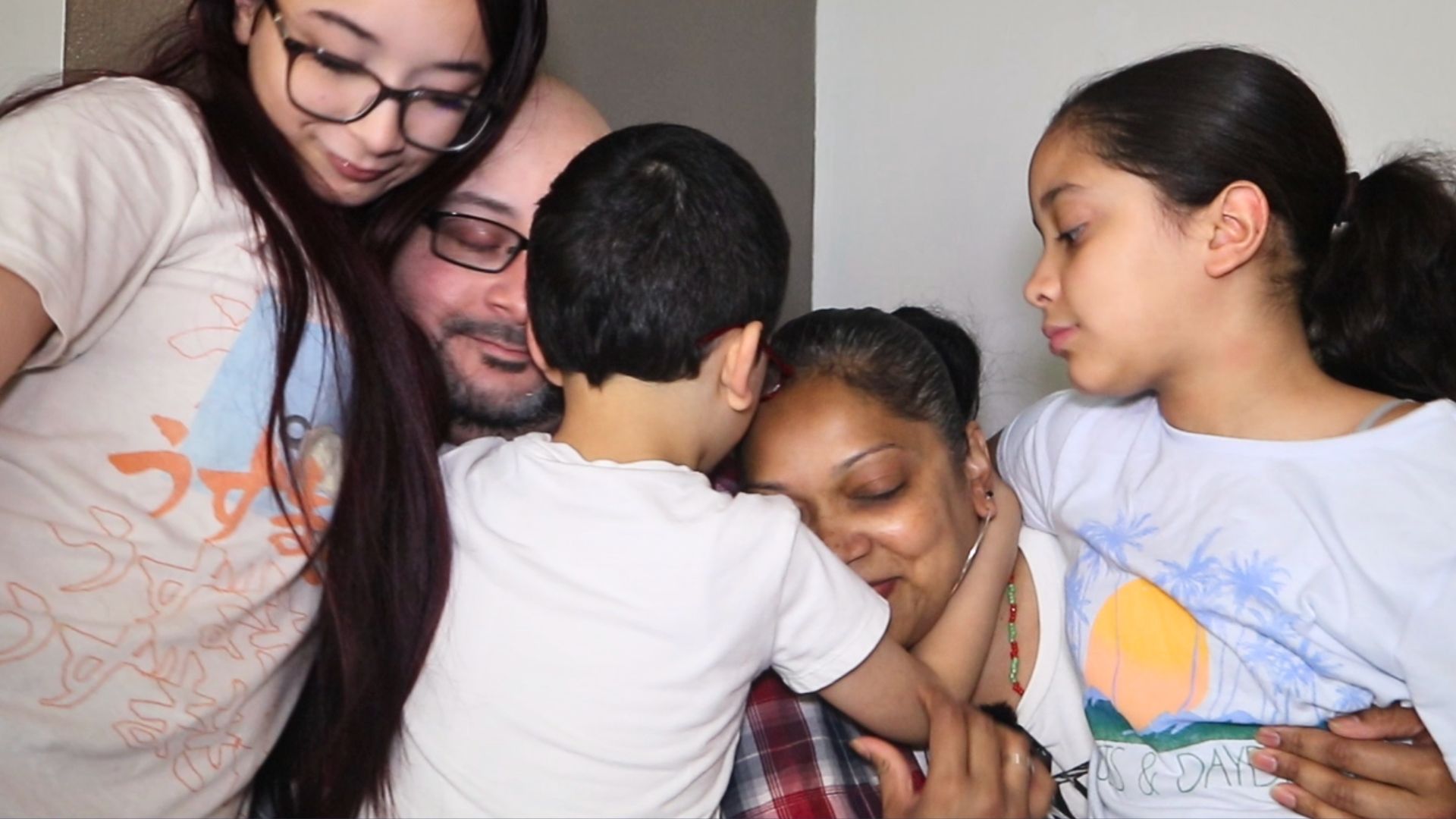Starting in July, I began meeting with the asylum-seekers coming to New York from the southern border. Since that time, I met hundreds of people; I believe the best way to share my perspective as a Case Manager, and as a Venezuelan, is by sharing one family’s story.
Ana is a 33-year-old Venezuelan from a small town located in the center of Venezuela. The weather is hot over there-about 90 degrees in the shade. Ana’s husband Alfredo used to work as a mechanic to provide for the family. They are the parents of 7-year-old Sofia and 11-year-old Alondra.
In 2019, the family decided to leave Venezuela, not to only due to the lack of money, basic services like water, electricity, medical attention and education, but also to escape their community, now plagued by abuse of power by criminal gangs, cartels and even law enforcement.
Ana and her family began their journey by traveling to Colombia, and then Ecuador. In both countries it was difficult for them to find informal jobs, housing or reliable food. Most of the time, they had to sleep in tents, in government camps created for the new migrants.
For the girls, going to school was not an option since their living conditions were so unstable. After eight months, the family decided to travel to Lima, Peru. With support from a friend, Alfredo started to work in a garage as a mechanic.
The family settled down in Peru, renting a small studio, and Ana and Alfredo were able to send their girls to school.
However, after six months, an organized criminal group from Venezuela, called the “tren de Aragua,” which also operates in other South American countries, contacted the family to extort them, making them pay an absurd amount of money on a weekly basis to keep their family in Venezuela safe.
They could not resist the pressure, so Ana and Alfredo decided to journey to the United States. It took them 45 days to cross the Darien Gap (the jungle at the border between Colombia and Panama.) This was the most difficult part of the journey to the U.S. where Ana’s family faced horrific experiences: they were robbed, abandoned by a coyote, and lost in the jungle for almost a week. Alfredo and the girls saw bodies on the road and were starving themselves because they exhausted their small food provisions, all while coping with the fury of the rain, insects, and wild animals.
Finally, they found a camp in the jungle where they were assisted with necessities. Once Ana, Alfredo, and the girls made it through Darien, they continued the journey until they arrived in Mexico; in Ana’s words, this was another cruel “concrete jungle.” They were kidnapped together with three more adults and two children. There were nine people in a small room. The kidnappers blindfolded the adults and handcuffed the men. According to Ana, the family was captive in that room for four days, fed only once per day, and was denied access to a bathroom.
For those four days, the family was psychologically tortured. The kidnappers told their captives to be prepared to be cut in little pieces, starting with the children. Ana described that after four days, other men arrived and decided to free them.
Once freed, the family began the last leg of the journey to cross the U.S.-Mexican border. They had to cross the river during the cover of night and during this experience, their youngest daughter Sofia was nearly swept away due to the strong currents.
On July 24, 2022, Ana and her family turned themselves into the immigration authorities in Texas to apply for asylum. They were detained for two days and then sent to NYC by plane where they were fortunately placed in a family-unit shelter with a kitchen and one-bedroom.
I met Ana a few days later, on July 29. When she learned that I am also from Venezuela, she could not contain her emotions as she told me her story. We connected immediately and she shared her painful and traumatic experience in detail.
Catholic Charities assisted Ana and her family with information, toiletries, clothing, food and a $500 gift card to supply basic needs. Ana was so grateful. Since that day, we have maintained contact through a WhatsApp group that I created to share information and resources with new migrants.
I saw Ana and her girls recently. She has gained a lot of weight. In her words, “I am eating my feelings…!” She told me that with the gift card we provided, she bought a used Kitchen Aid mixer, and she has started to bake. Now, she is selling cakes for birthdays and special occasions and even has a Facebook page, “Sugar Celeste.” She is starting to receive calls for orders.
After three months in the U.S., I asked Ana if she thinks her decision to come was worth it. She answered, “For my girls, yes, it was 100%. They are so happy to go to school, to have new friends, to have electricity, water, and food. For me, I don’t know. I know I am damaged inside, but I am trying every day. I am trying to do my best.”
Every single day, we hear countless stories like Ana’s. I have found that it is essential that we bear witness to these stories. The migrants I have met have experienced physical, psychological, and sexual abuse during their journeys. This violence has touched men, women, and children.
Families would never make this choice if they had other options.
It is essential to understand that this current migratory flow is originating in areas of extreme poverty and violence. Many of the individuals I have encountered have only been able to finish elementary school which limits their ability to navigate and adapt to their new environment.
In addition, all of these migrants have experienced significant trauma and have mental health needs that require support and compassion. Despite their experiences, it is so rewarding to witness the resilience of people like Ana, who, when given encouragement and information, form a clear plan of action to find new possibilities.
As a Case Manager, my mission is to remind them that anything is possible with the right plan. I am proudly Venezuelan, and I also came to this country with only two suitcases and two boxes of books. I had dreams, goals, fears and faced many challenges. I am thankful that I have achieved so many of those dreams and goals, and I remind myself daily of my responsibility to give back to others, in my every action, my words, and my decisions while at work and in every area of my life.
I believe that we, members of the Catholic Charities community, have a unique opportunity in this historical moment to “welcome the stranger,” by bearing witness and offering these newcomers deep respect, compassion, and validation of the challenges they faced during their journey to the United States. This is our calling and our mission.

